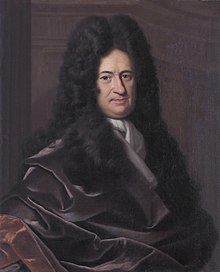Sinophile
This article has multiple issues. Please help improve it or discuss these issues on the talk page. (Learn how and when to remove these template messages)
|

A Sinophile is a person who demonstrates a strong interest for China, Chinese culture, Chinese language, Chinese history, or Chinese people.[1][2][3]
Those with professional training and practice in the study of China are referred to as Sinologists.
Typical interests
The overall study of Chinese culture is referred to as Sinology. This could include Chinese fashion styles like Traditional cultural Han Chinese clothing (Hanfu), and Manchu-influenced Chinese clothing (qipao). Another area of Chinese culture is cuisine and liquor, such as Chinese wine culture and baijiu. Medicine, architecture, characters, language (and varieties such as Mandarin and Cantonese), are also areas of interest for Sinophiles. They also tend to be drawn towards Chinese astrology and horoscopes, as well as Feng Shui and Kung Fu. The history of China, Chinese philosophies and folk religions like Daoism, Chan Buddhism, and Confucianism are also topics of Sinology, as well as the Politics of China, socialism with Chinese characteristics, Dengism, Three Principles of the People, one country, two systems, the Mass Line. Chinese artwork is a topic of interest for many Sinophiles. The Chinese arts, encompass poetry, literature, music, calligraphy and cinema, as well as Chinese traditional forms of theatrical entertainment such as xiangsheng and operas.

Sinophiles
Europe
Russia
- Leo Tolstoy, Russian writer widely considered one of the world's greatest novelists[5]
- Dmitri Mendeleev, Russian chemist and inventor[5]
Oceania
Australia
- Edwin Maher, New Zealand-born Australian journalist who worked as a news reader for CCTV-9 until 2017, following a long career on Australian TV[citation needed]
North America
United States
- Allen Iverson, former NBA star basketball player who has expressed affinity for the country[6][7]
- James Veneris, US soldier who defected to China after the Korean War and remained in the country expressing positive feelings until his death in 2004[8]
- Stephon Marbury, former NBA star basketball player who joined the Beijing Ducks and has expressed affinity for the country[9][10]
Asia
Cambodia
- Norodom Sihanouk, Cambodian king who sought refuge in China and praised the country[11]
India
- Dwarkanath Kotnis, Indian doctor dispatched to China during the Second Sino-Japanese War[12]
See also
- Old friends of the Chinese people
- Chinoiserie
- List of sinologists
- Taiwanese Wave
- Asiaphile
- Japanophile
- Francophile
- Russophile
- Indophile
- Anglophile
- Germanophile
- Graecophile
- Sinophobia
References
- ^ "Sino-, comb. form1". OED Online. Oxford University Press. June 2020. Retrieved 30 July 2020.
- ^ "Definition of 'Sinophile'". Collins Dictionary. Retrieved 8 September 2020.
- ^ "Sinophile", The Free Dictionary, retrieved 23 June 2022
- ^ "Emperor Kangxi and The Sun King Louis XIV".
- ^ a b Alexander Lukin (2003). The Bear Watches the Dragon: Russia's Perceptions of China and the Evolution of Russian-Chinese Relations Since the Eighteenth Century. M.E. Sharpe. pp. 314–. ISBN 978-0-7656-1026-3.
- ^ "Allen Iverson's Red-Hot Romance With China". Hashtag Legend. 2017-01-02. Archived from the original on September 2021.
{{cite web}}: Check date values in:|archive-date=(help) - ^ Gonzalez, John (11 March 2020). "Where Does Allen Iverson Fit In?". The Ringer.
- ^ HENRY CHU (1999-03-30). "Expatriates' Long March Through China's History". Los Angeles Times. Archived from the original on February 2021.
{{cite web}}: Check date values in:|archive-date=(help) - ^ "Marbury madness rivals Linsanity in China". Bangkok Post. March 2012.
{{cite news}}: CS1 maint: url-status (link) - ^ Stephon Marbury discusses retiring and why he loves China, archived from the original on 22 December 2021, retrieved 21 December 2019
- ^ Teddy Ng (October 2012). "Xi Jinping mourns 'China's great friend' Sihanouk". South China Morning Post. Archived from the original on August 2020.
{{cite web}}: Check date values in:|archive-date=(help) - ^ Soutik Biswas (21 May 2013). "Why is India's Dr Kotnis revered in China?". BBC News.
